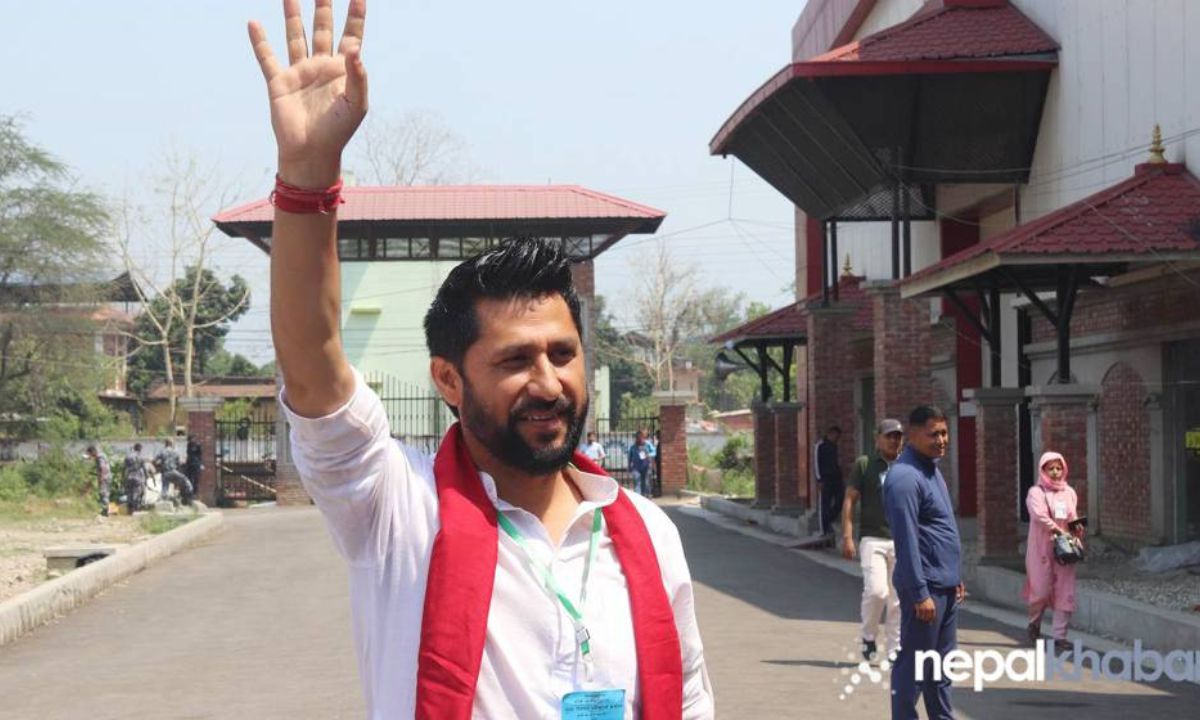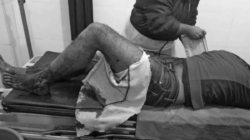Rabi Lamichhane Posts Over NPR 2.25 Crore Bail Across Three Districts – What is a Bank Guarantee?
Rabi Lamichhane, chairman of the Rastriya Swatantra Party (RSP), who is facing legal proceedings related to a cooperative fraud case, has deposited NPR 2.25 crore in bail across three different districts to fight his case while staying out of detention.
While serving as Deputy Prime Minister and Home Minister, Lamichhane had declared in April 2023 that he had only NPR 110,000 in savings. This has raised public curiosity about how he managed to gather such a large amount for bail.
Breakdown of Bail Deposits in Three Districts
- Kaski District Court: NPR 65 lakh
- Kathmandu District Court: NPR 60 lakh
- Rupandehi District Court: NPR 1 crore
He deposited all three bail amounts within a few hours of the court’s orders. Additionally, he has filed a petition at the Pokhara High Court seeking to nullify the bail amount set by the Kaski District Court.
How Did Lamichhane Secure the Bail Amount?
According to RSP’s acting spokesperson, Manish Jha, Lamichhane used a bank guarantee to deposit bail in all three districts.
“He provided bank guarantees in all three cases,” Jha stated.
He further revealed that the funds for the bank guarantee were arranged by Lamichhane’s relatives, party well-wishers, business-background party members, and even members of the Nepali diaspora.
“We had anticipated the possibility of a bail requirement, so we had already started fundraising through our supporters and party members both in Nepal and abroad,” Jha explained.
He also clarified that none of the bail money was sourced from any cooperative funds.
What is a Bank Guarantee?
A bank guarantee is a financial instrument where a bank assures payment on behalf of a client, ensuring that the client fulfills a specific obligation.
According to Supreme Court guidelines on bail and sureties, courts in Nepal can accept bank guarantees for bail payments. However, such guarantees are only valid if issued by Class ‘A’ commercial banks licensed by Nepal Rastra Bank.
How Do Banks Issue Guarantees?
Former Bankers’ Association president, Bhuwan Dahal, explained that banks issue guarantees by holding collateral, such as cash deposits or immovable assets (property, land, etc.)
“Instead of directly depositing cash in court, it has become common to use bank guarantees backed by cash reserves. This allows individuals to continue earning interest on their deposits while their legal case is ongoing,” said Dahal.
Is Collateral Required for a Bank Guarantee?
According to former CEO of Global IME Bank, Ratna Raj Bajracharya, banks require collateral to issue a guarantee, such as:
- Fixed deposits
- Land, buildings, or other immovable property
“If the client fails to pay, the bank takes responsibility. That’s why banks ensure they have sufficient collateral before issuing a guarantee. In return, they charge a service fee or commission,” explained Bajracharya.
Does a Bank Guarantee Pose a Risk to Banks?
Bankers argue that issuing guarantees for legal bail cases does not pose a financial risk to banks.
However, past incidents have shown risks in construction contracts and fraud cases. For example, five years ago, Karnali Province’s former Infrastructure Minister, Khadka Bahadur Khatiwada, was removed from office for allegedly using a fake bank guarantee.
In response to concerns about public investment in banks, Bajracharya clarified, “In high-risk sectors like construction, banks issue loans cautiously. But for court-related bank guarantees, they assess collateral before proceeding.”
RSP spokesperson Jha reaffirmed that Lamichhane’s bank guarantee was backed by legally deposited funds, emphasizing that all transactions were conducted through the formal banking system.
Public Reaction and Ongoing Investigation
Lamichhane’s bail arrangement has drawn significant public attention, particularly given his previous financial disclosures. Authorities continue to investigate other individuals linked to the cooperative fraud scandal, with potential charges of fraud, organized crime, and money laundering.
The case remains under scrutiny, and further legal developments are expected in the coming days.




